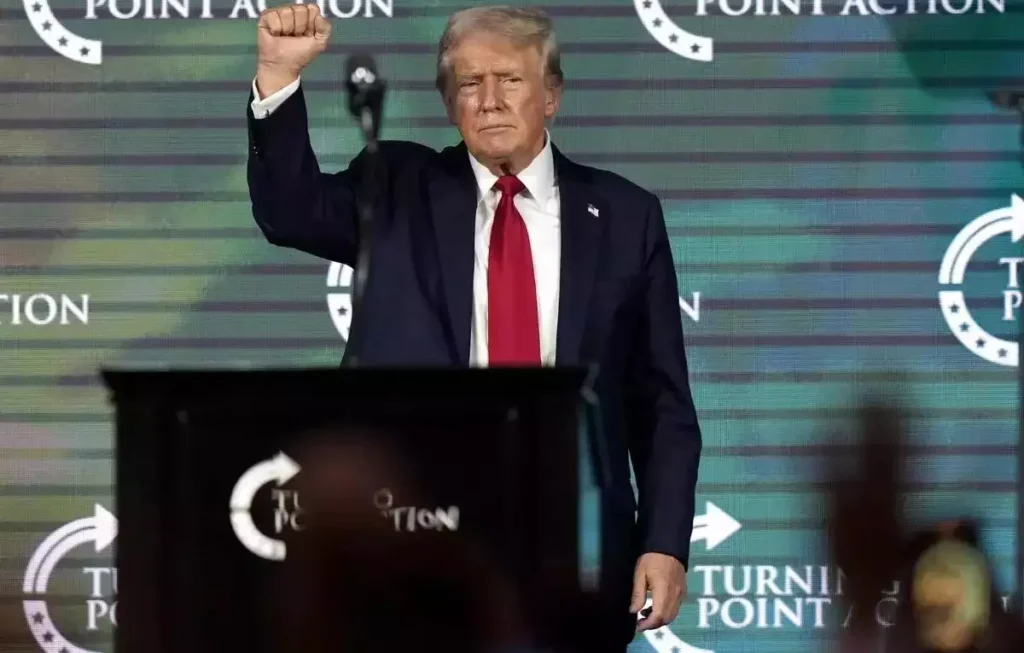European clean energy firms are reviewing plans for their expansion in the U.S. following the fears of a second act by Donald Trump in the presidency. Considerable hesitation has been staged, and with the public still very uncertain about what a new U.S. presidential election may bring, it is high time to set European clean energy companies on edge concerning strategic decisions and investment strategies.
Impact of the Inflation Reduction Act
The IRA has driven foreign investment in the U.S. clean energy sector. That landmark legislation provides substantial tax incentives and subsidies to companies dealing with sustainable energy, including those in Europe. It was created to increase investment in electric vehicles, solar power, and energy efficiency.
This did not go unnoticed by European companies eager to expand their operations in the U.S.—the world’s largest and fastest-growing market for renewable energy. However, with Trump’s new administration, uncertainty is now in the mix because these incentives could be rolled back.
Trump’s Critique and Potential Policy Changes
Donald Trump has mocked Biden’s climate policies as a “green new scam” and suggested that if he were to win the presidency, he would try to unravel some of Biden’s plans. In all likelihood, such changes would also include rolling back or modifying the IRA policies, which can significantly impact the financial viability of many clean energy projects.
Peter Roessner, CEO of hydrogen company H2Apex in Luxembourg, emphasized the uncertainty of what one was investing in. H2Apex was planning to build a plant that produced hydrogen tanks in the USA—this plant, with the inducement of the IRA, would be significantly less expensive. But now, Roessner is calling it all off based on uncertainty about whether his second term will be.
Market Reactions and Delays
A Trump win has intensified speculation in the markets, which already has a bearing on the performance of clean tech stocks. Global stocks hinged on cleantech are seeing the RENIXX index, which follows the world’s foremost renewable energy corporations, underperform lately after recent Trump campaign news.
Leading German solar company SMA Solar has just issued a profit warning due partly to uncertainties regarding possible changes in the United States’ policy. The company had planned to decide on a location for a new factory in the United States by the end of June but now says it will have to postpone this decision as political uncertainty is one of the main risk factors.
Orsted, the globe’s top offshore wind farm developer, also seems to be receiving disapproval. Trump cannot proceed with the wind sector, which is reflected in the White House, and this fact has fuelled concerns over future Orsted investments in the industry. While Orsted has said nothing publicly, the uncertainty of policy fluctuations is pressurizing strategic planning.
Companies Showing Resilience
Not all of them, however, are beating retreat from the U.S. market. Germany’s Nordex, which manufactures wind turbines, plans to reopen a plant it closed earlier in Iowa. Company executives say they still believe in the future of the U.S. market, no matter what the politicians do.
The same applies to the hydrogen company ThyssenKrupp Nucera, which acknowledges the risks but remains dedicated to the U.S. market. It, too, has experienced setbacks in binding investment decisions for U.S. projects, with the company now waiting due to uncertainty over the IRA’s future.
The Norwegian company Nel, meanwhile, which aims to build a production facility in Michigan, is taking a step back from a final investment decision in search of more precise market demand signals.
Broader Industry Impact
The sweeping uncertainty about U.S. politics isn’t limited to the clean technology sector. German machinery maker Trump’s sales in the United States fell 12 percent, as the company blamed geopolitical uncertainties that have made industrial customers cautious.
This broader impact demonstrates how political instability and policy uncertainty may reverberate across global markets, potentially impacting industries outside of clean energy. According to Marcus Berret, global managing director at Roland Berger, such vagueness may lead to “analysis paralysis” and companies getting so scared about the perceived risks that they only decide to delay or cancel investment decisions.
Conclusion
European clean energy companies are being hit by fears over what a second Trump presidency would mean for their business and are postponing or even axing U.S. expansion plans. Some companies remain sanguine and continue to invest, but the trend is more a pause than that as firms wait to see whether the dust settles in the U.S. political landscape. All this simply underlines broader issues that global firms face vis-à-vis the political-economic strategic interface.

